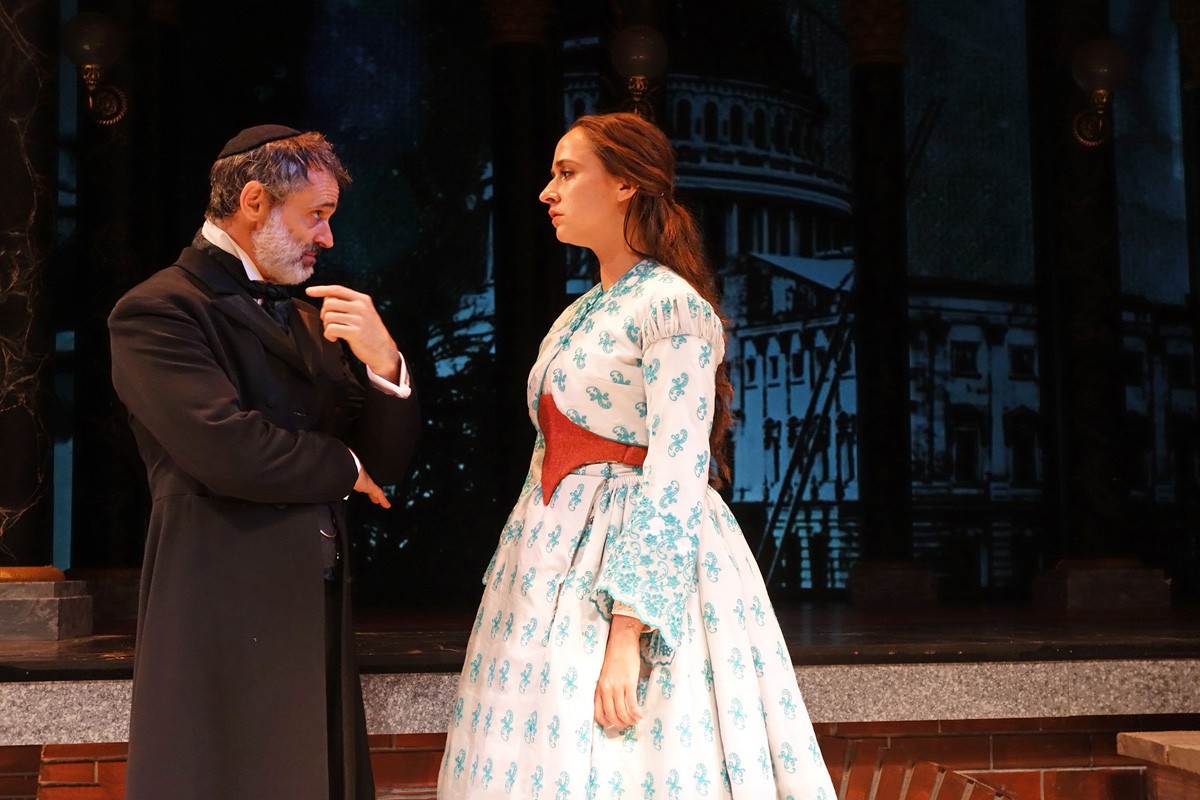
Pulling off a play that exists in two time periods simultaneously is rare, but possible. Consider Tom Stoppard's 1993 masterpiece, Arcadia, which takes place in the same home in the English countryside in the early 1800s and the present day. Aaron Posner's District Merchants, an often-hilarious piece filled with deep import, takes a similar tact. The play is set in Washington, D.C., in the 1870s, more or less, according to the program. But it's inspired heavily by Shakespeare's The Merchant of Venice, uses the same basic plot and characters, and is peppered with Shakespearean flourishes, such as soliloquies and excerpts of his dialogue. We're not in 16th-century Venice, but it certainly sounds like it.
But where Posner's play truly crosses the space-time continuum is that his work, which premiered this summer at the Folger Theatre in Washington, D.C., is rooted in today. It isn't just that District Merchants begins and ends with actors speaking directly to the audience; it's that its themes of economic inequality, racism, sexism and a country's halting attempts at trying to heal itself after convulsive events can't help resonating with anyone paying attention. Admittedly, America in 2016 isn't trying to rebuild after a cataclysmic civil war, but the polarization, rancor and fearmongering among a great swath of the polity sure feels like it. And the feeling elicited from Posner's play is that, just as in 1870, the country may be broke, but it's not completely broken. And only by working through it together can anything substantive be accomplished.
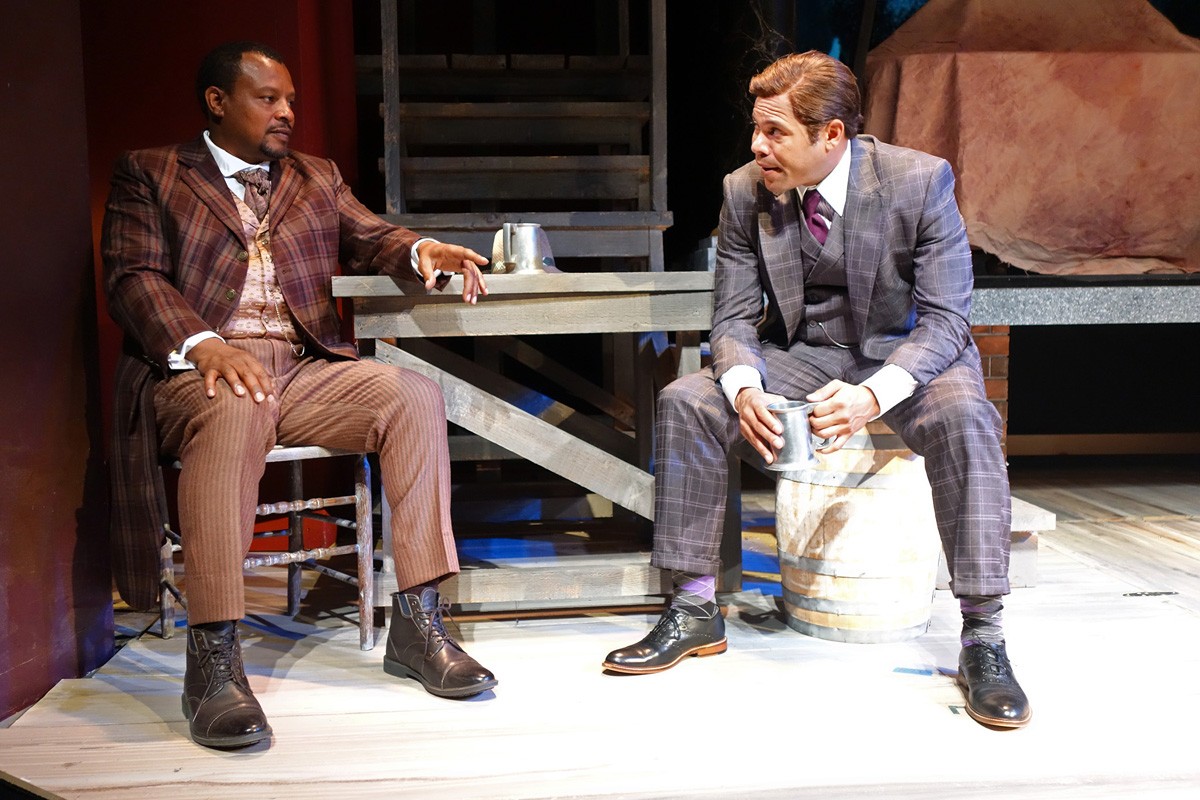
While that historical connection is unmistakable (such as characters musing about a day when economic inequality is truly addressed, when women lawyers and black men will run the country), you don't need to be a news junkie to enjoy the play. A fantastic cast and spirited direction from Michael Michetti (who is the co-artistic director of Pasadena's highly regarded the Theatre @ Boston Court) adds buoyancy and swagger to Posner's highly articulate, if sometimes long-winded, script. That ensures an always-entertaining ride, even if the play feels a bit heavy-handed toward the ending, with its plea for Americans to come together. It's a sincere and important point, but it's also talking instead of showing, and showing is what Posner does solidly up to that point.
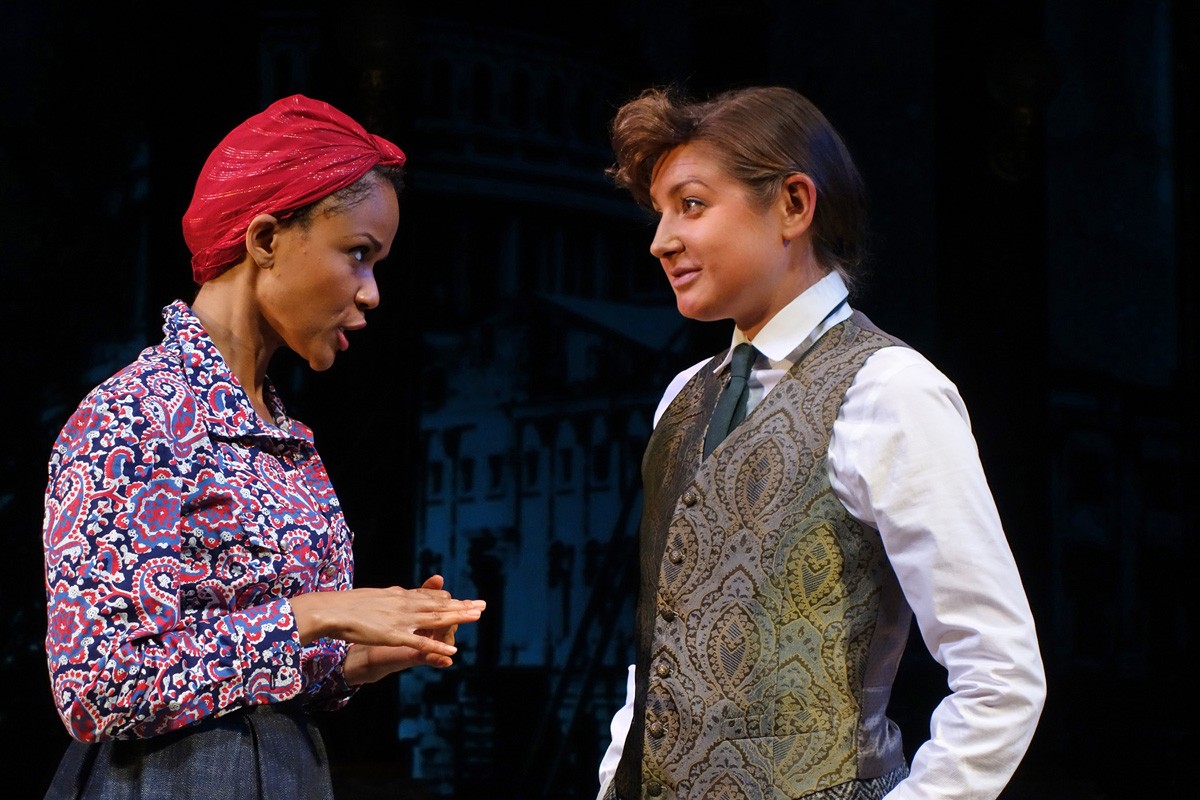
The play's counterweights are miserly Jewish merchant Shylock (a brilliant Matthew Boston, who originated the role) and Antoine Dupre (an equally strong Montae Russell), an African-American merchant. Both have been victims of prejudice their whole lives and harbor no small strain of it themselves, but both are also determined to not settle for their lot. In fact, ambition is what drives most of the characters. Bassanio (Chris Butler) is a half-black man attempting to pass as white in order to woo the very wealthy Portia (Helen Sage Howard Simpson), an aspiring lawyer in a country where women (mostly) can't practice law. Jessica (Rachel Esther Tate), Shylock's daughter, yearns to break free from her father's tyranny and thinks she may have found her escape through Finneus (Matthew Grondin), an Irish hustler who seems to have designs on her dad's fortune. The only characters who don't seem determined to break out of their lot are Nessa (Kristy Johnson), Portia's loyal, if sassy, servant, and Lancelot (Akeem Davis), a recently freed black man who supplies most of the comic relief.
Amid the main plotline of Shylock lending Antoine money to help Bassanio's conquest of Portia, there are three sub-plots of young lovers attempting to overcome issues of race, income and religion. A half-black man wants to marry a white woman. An Irish con man wants to marry a Jew. Two black servants born as slaves are trying to figure out their place in a world turned upside-down. Some of the romantic shenanigans seem superfluous, but each pairing allows Posner (who was part of the Teller brain trust that smushed The Tempest into a magical blender a couple of years ago at SCR) to examine today's complicated world through the lens of the past.
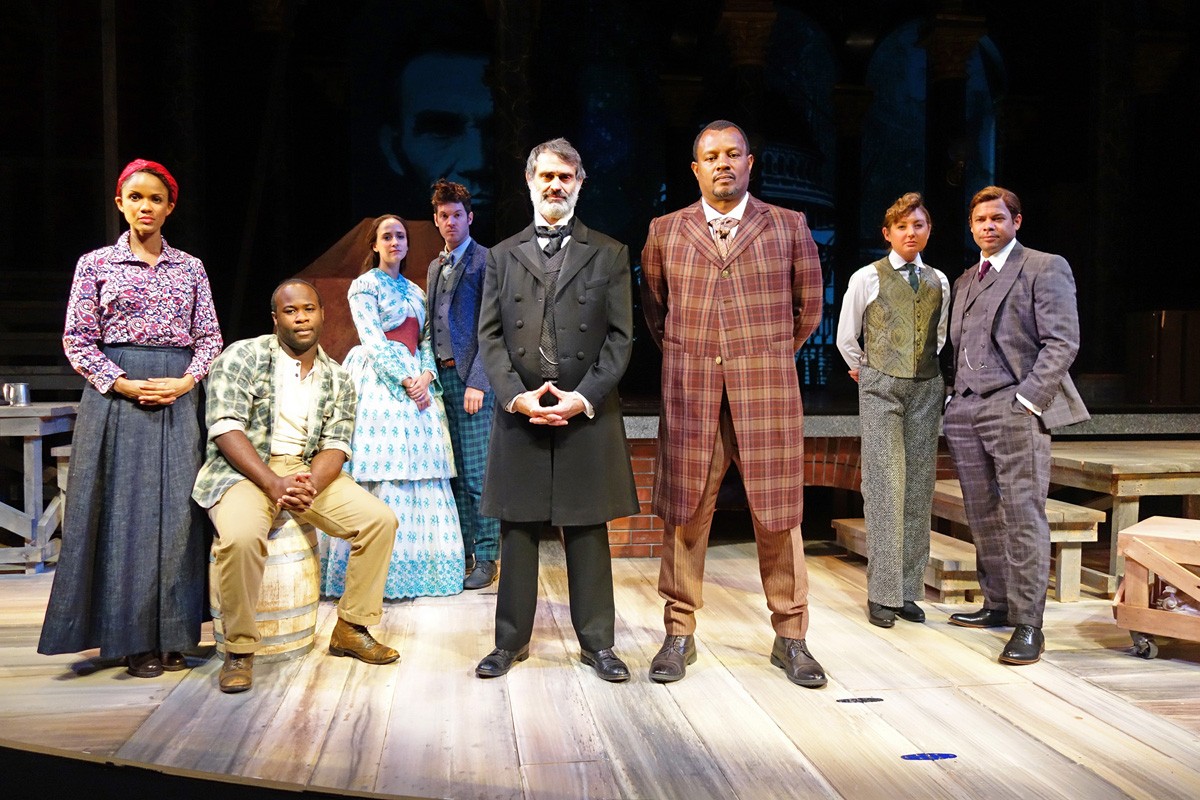 And what does that examination yield? Maybe, that amid all the rhetoric of making America great again or what makes America great is that we're good, or whatever narrative whoever is trying to spin, what really makes America exceptional is that we work. We work through our differences, conflicts, pettiness and, most important, our fears. But it is hard and painful work, and who knows if we'll ever fully accomplish it? As one character muses, perhaps in 1,000 years, we'll “beautifully merge into one unified, dignified coffee-and-cream-colored race of human beings with one religion, no religions or so many religions that it won't matter anymore, and . . . we'll find new reasons to hate each other.”
And what does that examination yield? Maybe, that amid all the rhetoric of making America great again or what makes America great is that we're good, or whatever narrative whoever is trying to spin, what really makes America exceptional is that we work. We work through our differences, conflicts, pettiness and, most important, our fears. But it is hard and painful work, and who knows if we'll ever fully accomplish it? As one character muses, perhaps in 1,000 years, we'll “beautifully merge into one unified, dignified coffee-and-cream-colored race of human beings with one religion, no religions or so many religions that it won't matter anymore, and . . . we'll find new reasons to hate each other.” 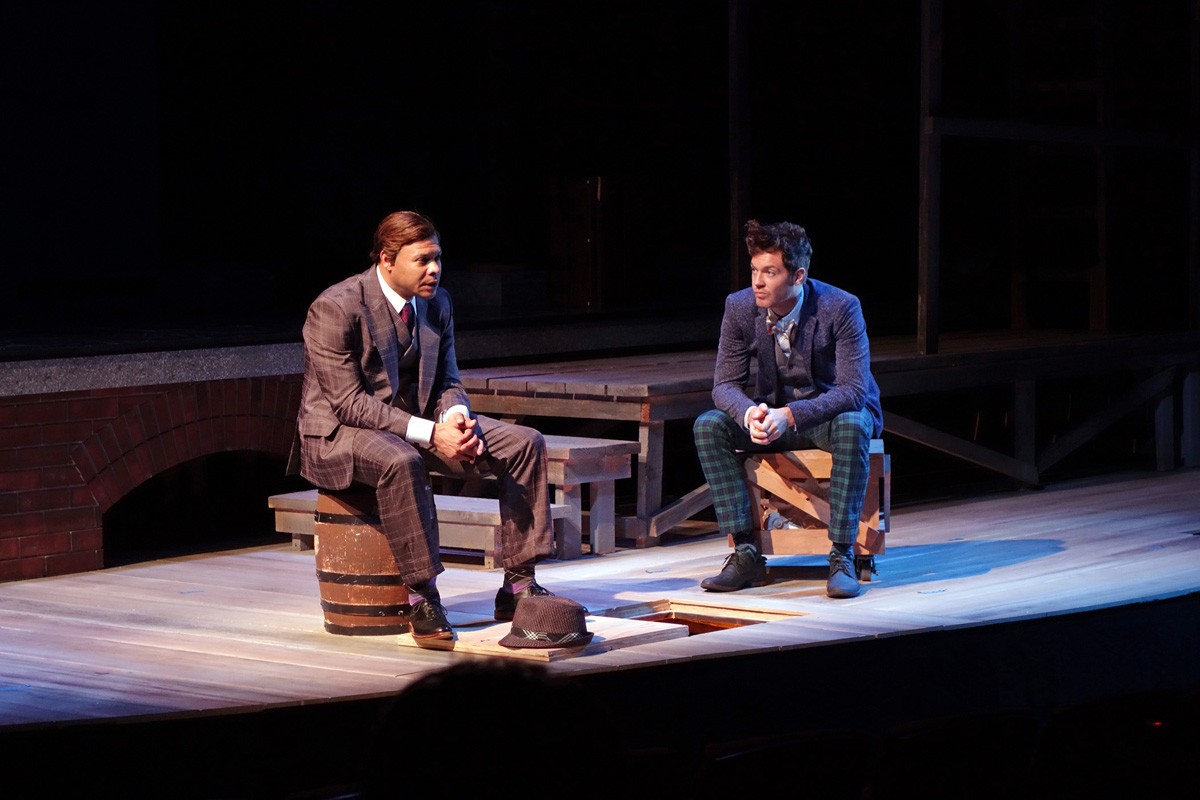
District Merchants at South Coast Repertory, 655 Town Center, Costa Mesa, (714) 708-5555; www.scr.org. Tues.-Fri., 7:45 p.m.; Sat.-Sun., 2 & 7:45 p.m. Through Oct. 23. $22-$79.
Joel Beers has written about theater and other stuff for this infernal rag since its very first issue in, when was that again???

